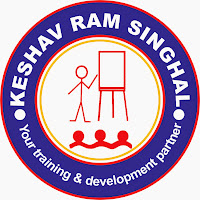Staff awareness, towards ISO 9001:2015 QMS, is necessary for effective implementation of ISO 9001:2015 QMS in an organization. For creating general staff awareness towards ISO 9001:2015 QMS, organizations should conduct 'ISO 9001:2015 QMS Awareness' programme to communicate to the employees the aim of ISO 9001:2015 QMS,the advantages it offers to employees, customers and organizations, how it will work, and employees' role and responsibilities within the quality management system. The training programme should be conducted by a trainer, who can be an internal or outsider. If a lead auditor trained person is available in the organization, he may be able to conduct such programme. In case internal trainer is not available, then the organization may engage an outside trainer. The duration of 'ISO 9001:2015 QMS Awareness' programme should be four to eight hours depending upon the organization's needs and the level of knowledge its employees possess.
Leadership and active involvement of the top management facilitate proper implementation of ISO 9001:2015 QMS. The top management must be convinced that implementation and certification will enable the organization to demonstrate a visible commitment to quality and continual improvement. The top management must be aware of the overview of ISO 9001:2015 QMS. For the top management awareness, a meeting should be organized covering the following issues:
- Overview of ISO 9001:2015 QMS,
- Identification of goals and expectations,
- Role of the top management within iSO 9001:2015 QMS,
- Formulation of quality policy,
- Formulation of quality objectives,
- Organizational roles, responsibilities and authorities,
- Establishing a steering committee and a task force,
- Why appoint a consultant,
- Step-by-step process for implementation and certification.
Training programmes will provide necessary knowledge to people involved in ISO 9001:2015 QMS implementation, so these should be organized for different categories, such as managers, supervisors, workers, task force, steering committee members etc. In addition, training may also be necessary for creating and updating documented information, auditing and its principles, laboratory management techniques, calibration, testing procedures etc.
An in-depth training programme covering the following areas should be organized for members of task force, steering committee and employees selected for internal auditing, as necessary:
- ISO 9001:2015 QMS and its requirements,
- Internal quality audit,
- Statistical tools,
- Creating and updating documented information,
- Risk-based thinking.
The organization can organize such trainings as in-house programmes. The consultant (if appointed), an outside trainer or an external training institution could be invited to conduct in-house training programmes. When in-house capacilty, to carry out such training programmes, is not available, the organization should depute its personnel to external training programmes organized by professional training organizations.
- Keshav Ram Singhal
